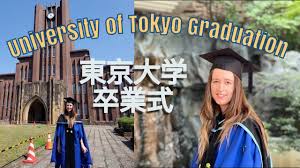If you’re a citizen of an Asian Development Bank (ADB) developing member country and dreaming of pursuing a master’s degree in Japan, the ADB–Japan Scholarship Program (ADB-JSP) at the University of Tokyo is one of the most attractive fully funded routes available.
This article explains what the scholarship is, what it covers, who’s eligible, how the University of Tokyo participates, the application process and timelines, tips to strengthen your application, and what to expect after you arrive — everything you need to prepare a competitive, well-informed application.
What is the ADB–Japan Scholarship Program (ADB-JSP)?
The ADB-JSP is a scholarship program financed by the Government of Japan and administered by the Asian Development Bank. It aims to provide opportunities for citizens of ADB’s developing member countries to undertake postgraduate studies at participating institutions in the Asia-Pacific region.
The program annually funds roughly 100–150 graduate scholarships across partner institutions and fields such as economics, business and management, science and technology.
At the University of Tokyo, several graduate schools and programs — particularly those tied to sustainability, environmental studies, international development and public health — have been designated as hosts for ADB-JSP scholars.
These units run a special admission track to nominate outstanding applicants to ADB for the scholarship.
Why consider the University of Tokyo under ADB-JSP?
-
World-class research and academic environment. The University of Tokyo ranks among the top institutions in Asia and offers interdisciplinary programs that align well with development goals (environment, sustainability, public health, governance).
-
Fully funded support. ADB-JSP at partner Japanese universities covers the major expenses associated with graduate study (see details below).
-
Strong network and career relevance. Graduates often move into government, multilateral agencies, NGOs, or private sector positions where they can directly apply skills learned in Japan. The University of Tokyo’s academic and alumni network is an advantage for development careers.
What the ADB-JSP scholarship covers (typical benefits)
While small differences exist by university, the ADB-JSP standard package includes:
-
Tuition and mandatory fees: Covered by ADB for the scholarship period.
-
Monthly subsistence stipend: Historically around JPY 147,000 per month for scholars, plus allowances for books or thesis; exact amounts are confirmed by ADB/university for each intake.
-
Travel: Round-trip economy airfare between the scholar’s home country and Japan.
-
Medical/accident insurance: Provided to scholars during study. ADB
-
Research/other allowances: Book or thesis allowances, and modest research-related support in some cases.
At the University of Tokyo, specific allowances and administrative arrangements (e.g., whether tuition is remitted up front or reimbursed) follow ADB guidance and the University’s ADB-JSP admissions page. Always confirm precise figures and what you must submit to ADB or the university for reimbursements.
Who is eligible? (Key eligibility criteria)
Eligibility rules are set by ADB and enforced by each host institution. Core requirements typically include:
-
Citizenship: Must be a national of an ADB borrowing member country and eligible under ADB-JSP rules. (Citizens of non-borrowing or high-income countries are usually ineligible.)
-
Academic qualification: A bachelor’s degree (or equivalent) with a strong academic record. Some universities allow equivalent qualifications judged on a case-by-case basis.
-
Work experience: Most ADB-JSP master’s scholarships require at least two years of full-time professional work experience after the bachelor’s degree (requirements can vary by program).
-
Age limit: Some ADB partner institutions set age limits (commonly under 35 at the time of application); check the specific program page.
-
Language proficiency: Since many programs are in English, applicants must demonstrate English ability (TOEFL/IELTS or equivalent) unless the program is in Japanese or provides clear exemptions. Some University of Tokyo programs are offered in English.
Important: ADB-JSP requires acceptance/admission into an approved course at an approved institution before ADB can award the scholarship. Many universities, including the University of Tokyo, run a special internal selection to nominate candidates.
Meeting ADB minimums is necessary but not sufficient — you must also win the university’s nomination.
Which programs at the University of Tokyo accept ADB-JSP students?
The University of Tokyo has designated specific graduate programs for ADB-JSP applicants. Examples include:
-
Graduate School of Frontier Sciences — Graduate Program in Sustainability Science (GPSS) and various environmental or interdisciplinary departments.
-
School of International Health (Master’s programs that focus on public health and development).
Each program that accepts ADB-JSP will publish a special admission or ADB-JSP page with program-specific requirements, quotas, and internal deadlines. Always consult the program’s ADB-JSP webpage for the exact call for applications.
Application process — step by step (general guidance)
Because ADB-JSP is a partnership between ADB and host institutions, the application involves two linked processes:
-
Apply to the University of Tokyo (or designated program) through its ADB-JSP admission track.
-
Prepare required documents (transcripts, degree certificate, CV, two or more reference letters, statement of purpose, professional experience certificates). Some programs may ask for a research proposal or writing sample.
-
Submit the university application within the program’s internal ADB-JSP deadline (these deadlines often fall several months before program start — check program pages). The university shortlists and nominates candidates for ADB consideration. UTokyo Graduate School of Frontier Sciences+1
-
-
Nomination to ADB and final selection by ADB.
-
If nominated by the university, your documents are forwarded to ADB. ADB reviews nominations and confirms scholarship awards. Only after ADB’s approval will the scholarship be officially offered.
-
Timing: Deadlines differ by program and by year. While ADB sets broad application windows, universities publish their own schedules (for example, some University of Tokyo ADB-JSP calls have appeared in spring with internal deadlines in June–July for intake in the following academic year). Because each institution’s selection is independent, check the University of Tokyo program page you target and ADB’s procedures page for current application windows.
Documents commonly required
-
Completed ADB-JSP application forms (from the University/ADB as requested)
-
University application form / online application portal submission
-
Official transcripts and degree certificates (with certified translations if not in English/Japanese)
-
CV / résumé detailing education and professional experience
-
Two or more reference letters (academic and/or professional)
-
Statement of purpose or research proposal (tailored to how the program aligns with development goals)
-
Proof of professional work experience (employment certificates, contract letters)
-
English language test result (TOEFL/IELTS) if required by the program
-
Passport copy and passport-type photo
The University of Tokyo ADB-JSP application guides and program pages often include downloadable PDF instruction packs — read them carefully and follow document formatting and submission instructions exactly.
Tips to make a competitive application
-
Match your goals to the program and ADB development priorities. ADB favors candidates who clearly intend to contribute to development in their home countries (policy, environmental management, public health, governance, etc.). Your statement of purpose should articulate a realistic plan to use your degree for national/regional impact.
-
Demonstrate relevant professional experience. The required two years is a minimum; applicants with stronger, clearly documented experience in development-related roles are more competitive. Use concrete examples and measurable results in your CV and SOP.
-
Secure strong referees. References that can attest to your professional achievements and leadership potential (supervisors, project leads) are highly valuable.
-
Prepare a crisp research plan or study objective. Even for professionally oriented master’s programs, a clear academic/ research focus shows readiness for graduate study.
-
Follow instructions to the letter. Admissions committees and ADB receive many applications; incomplete or incorrectly formatted submissions may be rejected without review.
-
Contact the program office early. If the University of Tokyo program has an ADB-JSP contact, email them politely with specific questions (don’t ask about things already on the page). This demonstrates initiative and helps avoid mistakes.
After selection — obligations and what to expect
-
Scholarship agreement: Scholars sign an agreement with ADB which outlines duration, benefits, and the obligation to return to their home country after studies for at least two years (ADB often expects scholars to contribute to their home economies). Read and understand this agreement carefully.
-
Arrival in Japan: The university usually assists with initial arrival logistics (orientation, housing advice, enrollment procedures). Expect to present original documents for verification.
-
Academic performance: Continuation of the scholarship typically requires satisfactory academic progress and meeting the University’s standards. ADB may terminate funding for poor performance or extended leaves.
Common questions (FAQ)
Q: Is the ADB-JSP fully funded?
A: Yes — for approved scholars the program covers tuition, a monthly stipend, insurance, travel and certain allowances, making it functionally fully funded for the scholarship period. Confirm program-specific details since allowance amounts and payment logistics can differ.
Q: How long does the scholarship last?
A: The scholarship is normally awarded for one year and may be extended for a second year for programs of two-year duration (master’s programs). Actual duration depends on the program and satisfactory progress.
Q: Can I apply directly to ADB?
A: No. Applicants must first gain admission and nomination from an approved academic program at a designated institution. The institution forwards nominations to ADB for final selection.
Q: Are doctoral students eligible?
A: Historically ADB-JSP has primarily funded master’s students, though some doctoral opportunities exist through selected institutions. Check each university’s ADB-JSP page — the University of Tokyo’s designated programs and quota will specify eligible levels.
Final checklist before you apply
-
Read the University of Tokyo program’s ADB-JSP page and download the application guide.
-
Confirm your country is an ADB eligible borrowing member on the ADB institutions list.
-
Prepare transcripts, employment certificates and two strong referees.
-
Draft a clear statement of purpose/research plan that ties your career goals to development needs.
-
Check program deadlines and submit early — internal selection can be competitive and some programs have limited quotas.
Useful official links (start here)
-
ADB — Japan Scholarship Program overview and procedures (for program rules and official guidance).
-
University of Tokyo — program pages that host ADB-JSP applicants (Graduate School of Frontier Sciences, School of International Health, GPSS special admissions).
-
Application guides / PDFs made available by University of Tokyo departments for ADB-JSP applicants.
CONCLUSION.
The ADB-JSP at the University of Tokyo represents a powerful combination: the security of a fully funded scholarship and the academic strength of one of Asia’s leading universities.
It is ideal for professionals from ADB developing member countries who want to build advanced skills in fields that directly contribute to development outcomes at home.
Succeeding in this process requires careful attention to program requirements, a convincing alignment between your career goals and development priorities, and clear documentation of your professional experience.










